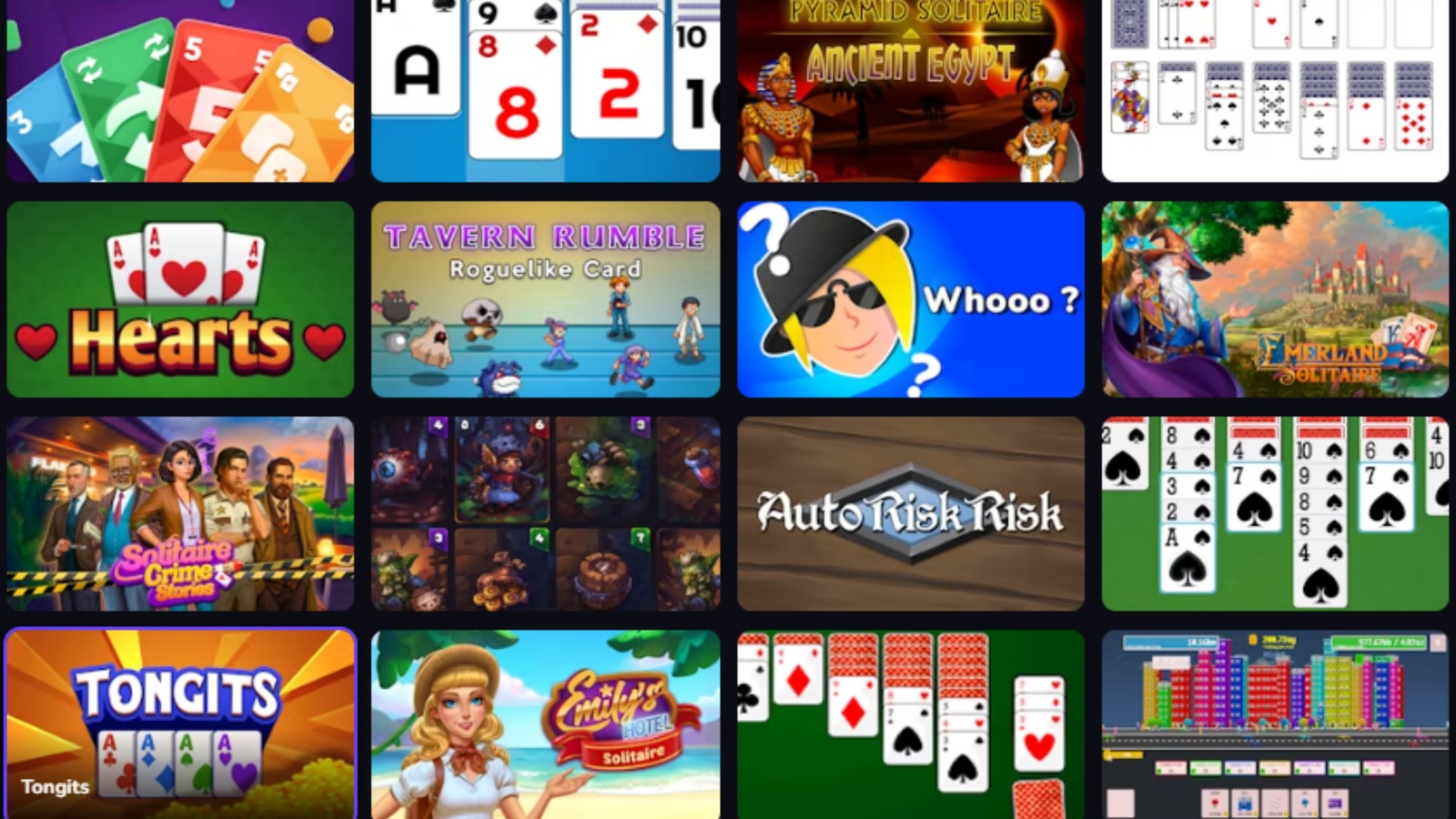The Mini game, a compact and portable recreation board, has been entertaining people of every age for generations. This easy but addictive recreation has captured the hearts and minds of gamers globally, making it a staple of family gatherings, events, and social events. In this article, we are able to explore the recognition of the Mini sport, its records, and its enduring appeal.
Origins and Early recognition of the Mini Game
The exact origins of the Mini-game are unclear, but it’s so far believed to be stimulated with the aid of conventional board games, including Snakes and Ladders and Ludo. The game’s compact length and portability made it an instantaneous hit with families and social businesses, who should easily shape it for gatherings and revel in a brief spark of play.
Improvements and versions
As the Mini game gained reputation, manufacturers started out to introduce progressive functions and versions to keep the sport clean and interesting. This protected the introduction of themed variations, including sports activities-themed video games and authorized houses, as well as special variations with specific game pieces and boards. The game’s simplicity and portability also made it a great preference for educational settings, in which it became used to practice numerous topics, including arithmetic and language.
Cultural significance
The mini game cultural importance can not be overstated. It’s been featured in numerous films, television indicators, and literature, frequently as a nostalgic reminder of early life reminiscences and the importance of social interplay. The game’s easy yet addictive gameplay has also inspired the introduction of many different board games and card video games, cementing its region as a real convention of the gaming international.
Impact on training
The mini game has also had a substantial effect on education. Studies have shown that the sport can assist college students expand their multiplication and division abilities, as well as improve their typical knowledge of mathematical ideas. The game’s ability to make it mastering a laugh and tasty has made it a popular choice for educators and mother and father alike.
Cultural dangers and Mini-games
The mini game has also been used to deal with cultural risks in multicultural enterprises. Fifteen mini games have been developed to complement eight essential subjects related to cultural dangers and to sell mirrored images, practice, and self-assessment of information acquired via the net schooling platform. The mini games are designed to be interactive and tasty, making them an effective device for addressing cultural risks and selling cultural attention.
The mini games is a timeless classic that has captured the hearts and minds of gamers worldwide. Its simplicity, portability, and addictive gameplay have made it a staple of family gatherings and social activities, and its cultural effect and academic value have cemented its region as a real tradition of gaming internationally. Whether or not you’re a pro gamer or simply searching out an amusing and easy way to spend time with pals and your own family,-the mini games is a need-to-have addition to any gaming collection.
Benefits of using mini games for professional development
Greater talent development:
Mini games provide greater possibilities for individual skill improvement, allowing college students to exercise their abilities and refine their technical and tactical abilities.
Powerful group control and instructor comments:
Mini-games allow teachers to pinpoint particular college students for assessment or guide, provide remarks without stopping the entire magnificence, and create more secure surroundings for feedback.
Chaos-loose environment (protection):
Mini games reduce the potential for collisions and disagreements, developing a safer and more controlled surroundings for college students to analyze and expand their abilities.
Greater possibility for individual fulfillment:
Mini games permit differentiation by stage and change of games to fit personal desires, making sure all students are challenged and met at their degree.
Most person Participation (MIP):
Mini games ensure all students are energetic participants, as they can’t conceal themselves or no longer be involved because of the small number of gamers in the sport.
Will increase Motivation and Self-Efficacy:
Mini games can increase beginners’ self-efficacy via supplying a dynamic interplay with virtual content, making getting to know people more attractive and fun.
Micro-getting to know:
Mini games are designed to be short, chunk-sized, and interactive, making them perfect for micro-gaining knowledge of and helping a brand new rapid-paced world.
Cultural recognition and knowledge:
Mini games may be designed to promote cultural focus and information through addressing cultural dangers and stereotypes, enhancing newbies’ capacity to navigate numerous cultural environments.
Balancing gaining knowledge of and playing:
Mini-video games, stability, getting to know and play, ensuring that novices are engaged and influenced even as they’re still attaining learning objectives.
Engagement and remarks:
Mini games offer opportunities for inexperienced people to have interaction with the content and get hold of feedback, which can decorate their typical learning enjoyment.
These benefits highlight the giant blessings of using mini games for professional improvement, specifically in the context of cultural focus and knowledge.
How do different cultures respond to mini-games as learning tools
Cultural consciousness and expertise:
Mini-video games can be designed to promote cultural cognizance and understanding via addressing cultural dangers and stereotypes. For example, a mini-game may focus on know-how special cultures, communication patterns, and studying patterns that could help first-year students navigate diverse cultural environments successfully.
Interactive Engagement:
Mini-games may be more engaging for inexperienced people from certain cultures. As an instance, novices from cultures that value interactive and dynamic studying, along with the ones from Latin and the United States, might find mini-video games extra attractive more than rookies from cultures that choose extra established and formal learning, which includes those from East Asia.
Contextualization:
Mini-video games must be designed to be culturally contextualized, deliberating the unique cultural norms and values of the learners. This may encompass the use of local examples, eventualities, and characters to make the studying content material extra relatable and attractive.
Learning styles:
Mini-video games can cater to exceptional mastering patterns, such as visible, auditory, or kinesthetic. As an example, inexperienced people who’re more visual may select mini-games with photos and animations, while those who are more auditory might decide upon video games with sound results and track.
| Read More : Quora |
Feedback and mirrored image:
Mini-video games can provide possibilities for first-year students to reflect on their gaining knowledge of and get hold of feedback. This may be especially vital in cultures wherein rookies are advocated to mirror their getting to know and get hold of constructive feedback, which is included in many Asian cultures.
Collaboration and Teamwork:
Mini-games may be designed to sell collaboration and teamwork. That’s valued in lots of cultures. As an instance, a mini-recreation might require novices to paint collectively to solve a problem or a whole project.
Recreation Mechanics and Mastering Mechanics:
The design of mini-games has to balance studying and gameplay, thinking about the cultural context and gaining knowledge of the sorts of the newcomers. This includes mapping mastering mechanics towards recreation mechanics to ensure that the studying objectives are met while preserving engagement and a laugh.
Cultural Sensitivity and focus:
Mini-video games ought to be designed with cultural sensitivity and cognizance, avoiding stereotypes and cultural insensitivity. This consists of making sure that the content material is respectful and which includes various cultures and backgrounds.
Accessibility and usefulness:
Mini-video games ought to be designed to be accessible and usable for rookies from distinct cultures, contemplating elements such as language, literacy, and technology.
Assessment and comments:
The effectiveness of mini-video games as gaining knowledge of gear has to be evaluated and subtle primarily based on comments from rookies from extraordinary cultures. This consists of gathering comments on the cultural relevance, engagement, and studying the effects of the mini-video games.
By means of thinking about these factors, mini-games can be designed to effectively help get to know and professional development across various cultural contexts.
How do mini-games address cultural risks in multi-cultural organizations
Cultural cognizance:
Mini-video games may be designed to promote cultural recognition by means of introducing novices to distinctive cultural practices, customs, and traditions. This may help novices understand and recognize the variety of cultures inside the company.
Understanding extraordinary Cultures:
Mini-video games can be used to educate beginners about distinctive cultures, along with their values, norms, and communication patterns. This will help novices recognize and have interaction with colleagues from various cultural backgrounds.
Communication:
Mini-games may be designed to improve communication abilities by way of offering newbies with possibilities to exercise effective verbal exchange in special cultural contexts. This will include function-playing, state of affairs-primarily based sports, and interactive multimedia.
Getting to know styles:
Mini-games can cater to extraordinary mastering patterns, consisting of visible, auditory, or kinesthetic, to make certain that rookies are engaged and motivated. This can help beginners recognize and preserve cultural information.
Hierarchy:
Mini-video games may be designed to address hierarchical differences by means of imparting rookies with possibilities to exercise verbal exchange and collaboration across distinctive stages of the enterprise. This may help rookies recognize and navigate organizational structures more effectively.
Crew-running:
Mini-video games can be used to sell group-work and collaboration by imparting newbies with the opportunity to work together on responsibilities and initiatives. This could help newcomers expand critical skills for operating in multicultural groups.
Features in the operating vicinity:
Mini-video games can be designed to promote qualities which include empathy, admiration, and open-mindedness within the place of work. This may help newcomers to expand a greater fine and inclusive painting environment.
Stereotypes: Mini-video games can be used to deal with stereotypes via offering newbies with possibilities to task and conquer their personal biases and assumptions. This will help first-year students increase the extra nuanced expertise of various cultures and decrease the risk of stereotyping.
Balancing Learning and Play for Effective Professional Development
The mini-recreation, a compact and portable board recreation, has been interesting to people of every age for generations. But, its implications amplify far past just leisure. Within the context of expert improvement, mini video games may be used to address cultural risks in multicultural agencies. This article explores the implications of mini-recreation regarding balancing getting to know and playing for powerful expert improvement.
The challenge of Balancing studying and Play
The design of mini-video games for professional improvement poses a sizable task. The mini-sport must stabilize both mastering and gameplay to ensure that beginners are engaged and inspired whilst nonetheless accomplishing studying goals. This balancing act is vital, as it could-make or-smash the effectiveness of the mini-sport in selling cultural cognizance and knowledge.
The significance of Pedagogical and Gameful layout considerations
The layout of mini games for expert improvement needs to be knowledgeable via each pedagogical and gameful design issues. Pedagogical issues consist of the identification of learning goals, the choice of mastering mechanics, and the development of content material that aligns with those goals. Gameful layout consists of the use of sports mechanics, together with rewards and challenges, to interact with newcomers and sell lively participation.
The role of learning Mechanics and game Mechanics Mapping
The mapping of gaining knowledge of mechanics against recreation mechanics is a vital step inside the design system. This includes figuring out the studying goals and the game mechanics that can be used to achieve those objectives. As an instance, a mini-game designed to promote cultural consciousness may use a quiz mechanic to test beginners’ know-how of various cultures.
The impact of mini games on studying effects
Research has shown that mini games may have a considerable effect on learning consequences. As an example, take a look at Rosmalen et al. (2014) found that mini games may be used to teach research techniques and information. Every other examination by means of Kapp and Defilice (2019) emphasized that micro-learning, consisting of mini games, should consist of careful design to make certain that learners are engaged and prompted.
The restrictions on Mini games
At the same time as mini games can be an effective tool for professional improvement, they are now not without barriers. As an example, they may now not be appropriate for all inexperienced people, mainly those who are not familiar with digital content. Moreover, the layout of mini-games may be time-consuming and require good resources.
The mini-recreation is a powerful tool for professional development, in particular within the context of cultural dangers in multicultural agencies. By balancing getting to know and playing, mini playing games can interact with inexperienced people and promote lively participation. However, the design of mini-games has to be knowledgeable by way of each pedagogical and gameful layout issues, and the limitations of mini-games have to be acknowledged.
Read More : Rupp Rafters











